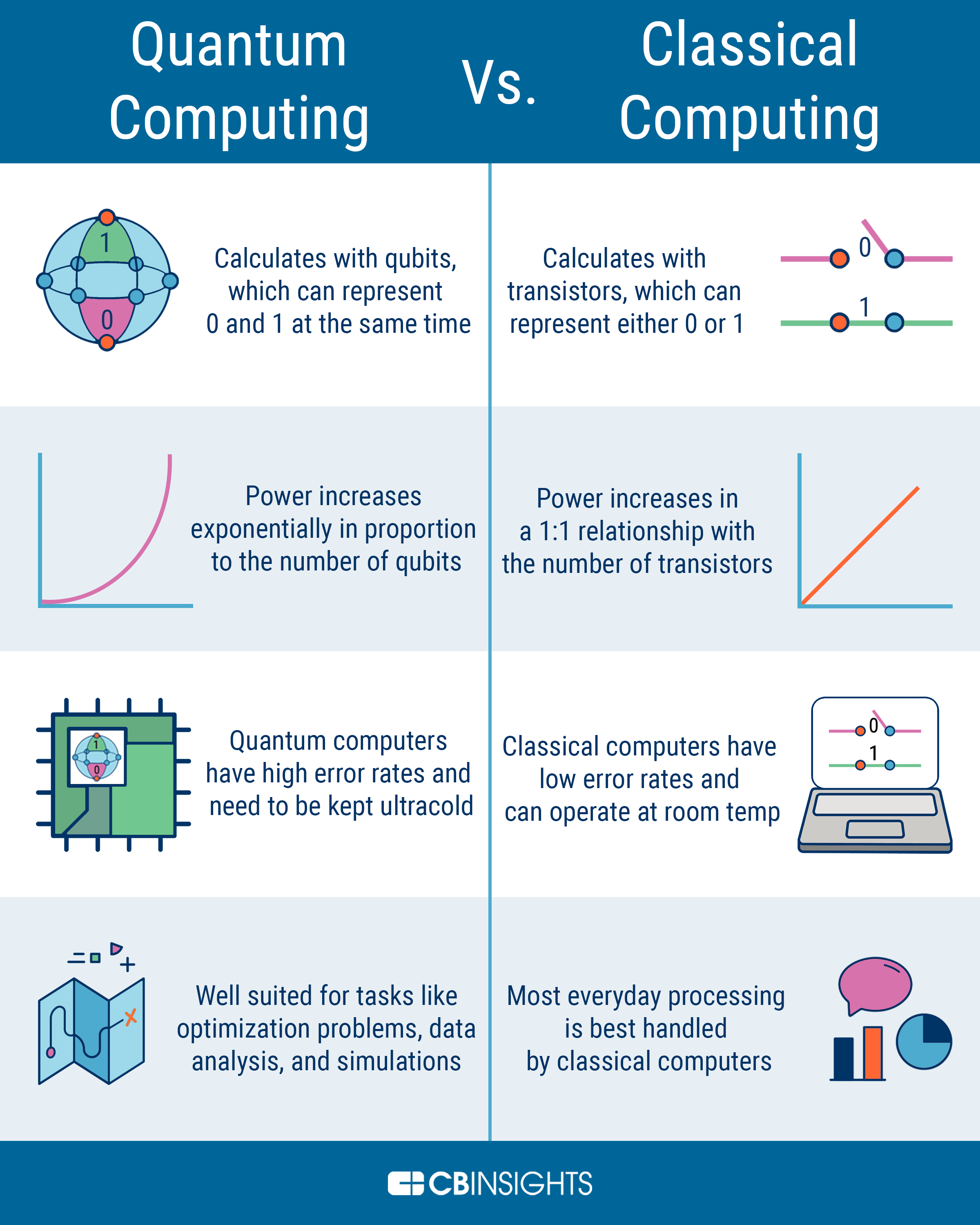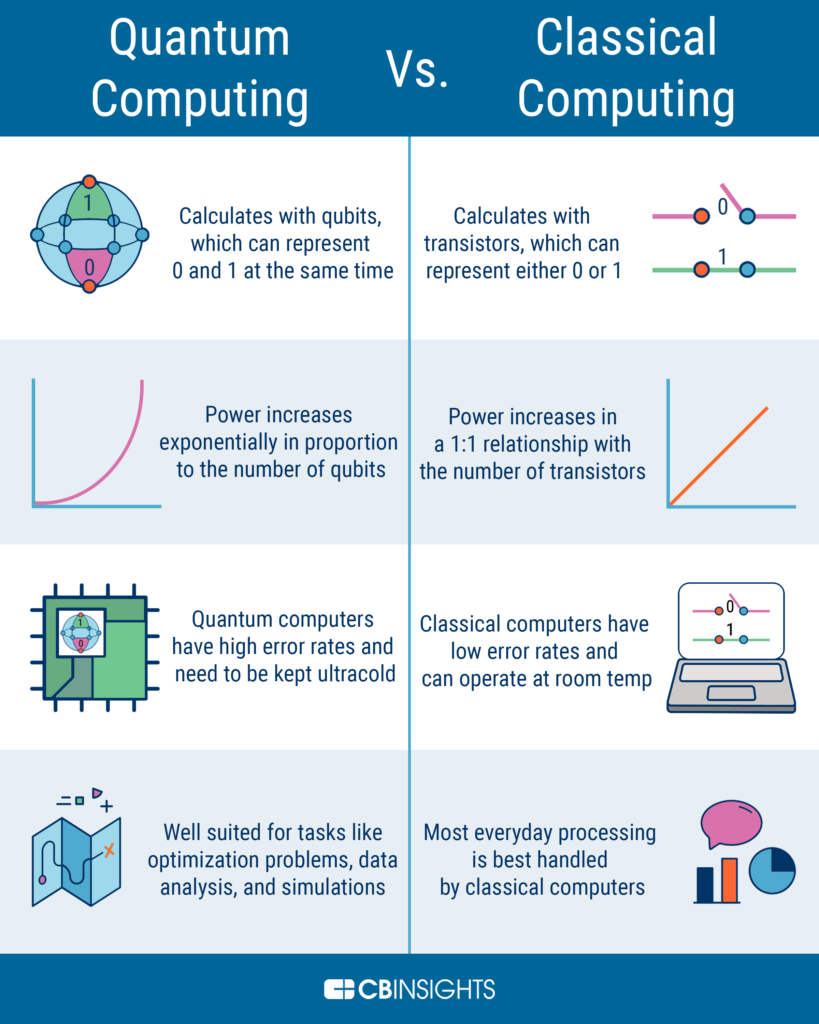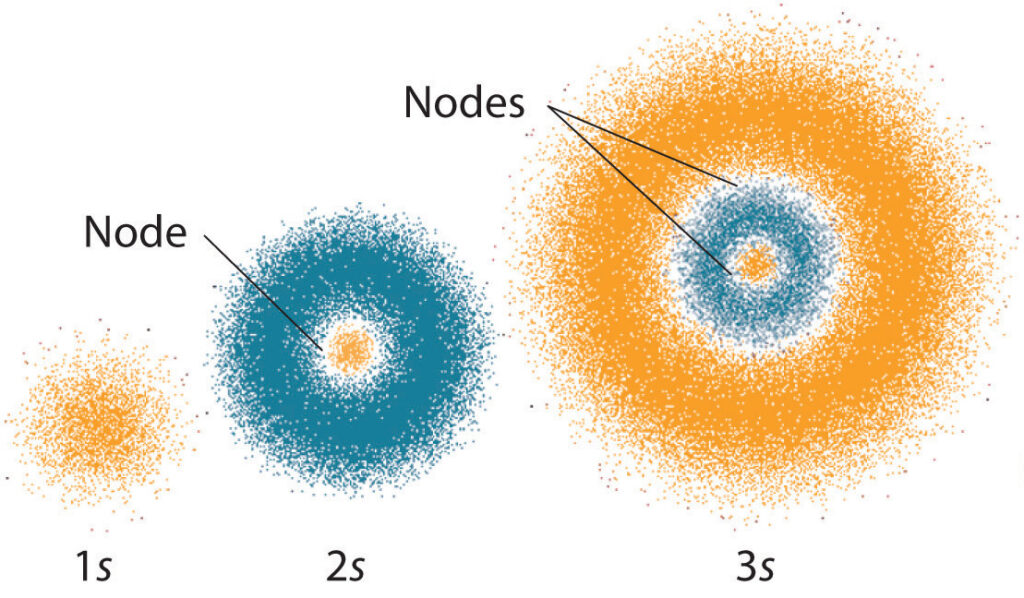Quantum computers are the future of computing technology. They are capable of performing complex calculations at an unprecedented speed, making them a game-changer in the field of computing. One of the major advantages of quantum computers is their ability to solve problems that traditional computers cannot solve. These problems are usually related to large data sets and complex algorithms.
One important aspect of quantum computing is its superiority in performing certain types of algorithms. Quantum computers excel at solving problems that are based on optimization, simulation, and searching. These algorithms are commonly used in industries such as finance, logistics, and medicine. With the help of quantum computing, these industries can perform complex calculations and simulations that were previously impossible to achieve with traditional computing methods.

What Types of Algorithms Are Quantum Computers Better At?
Two of the most important areas of computing that are being revolutionized by quantum computing are optimization and machine learning algorithms. With their ability to process large datasets at incredible speeds and accuracy, quantum computers are capable of solving complex problems in a fraction of the time it would take a traditional computer.
Optimization Algorithms
Optimization algorithms are used to find the best solution to a problem with a set of parameters. Traditional computers have difficulty dealing with large, complex datasets and can take an extremely long time to find the best solution. Quantum computers, on the other hand, are able to process large amounts of data quickly and accurately to find the optimal solution. This makes them ideal for tasks such as logistics optimization, portfolio optimization, and route optimization.
In addition to being able to process data quickly, quantum computers are also able to take into account more variables than traditional computers. This makes them ideal for tackling complex optimization problems that require multiple parameters and variables to be taken into account.
Machine Learning Algorithms
Machine learning algorithms are used to identify patterns in large datasets and make predictions based on those patterns. Traditional computers are limited in their ability to process large amounts of data and make accurate predictions. Quantum computers, however, are able to process large datasets quickly and accurately and make predictions based on the patterns they identify. This makes them ideal for tasks such as image recognition, natural language processing, and facial recognition.
In addition to being able to process large datasets quickly, quantum computers are also able to utilize multiple parameters to make predictions. This makes them well suited for tasks such as identifying complex patterns in large datasets and making accurate predictions based on those patterns.
Quantum Algorithms
In addition to optimization and machine learning algorithms, quantum computers are also able to utilize quantum algorithms. Quantum algorithms are algorithms that take advantage of the unique properties of quantum mechanics to solve problems that traditional computers cannot. Examples of quantum algorithms include the Grover’s Algorithm, the Shor’s Algorithm, and the Quantum Fourier Transform.
Quantum algorithms are able to take advantage of the quantum properties of superposition and entanglement to solve problems that traditional computers cannot. For example, the Grover’s Algorithm is able to search large databases quickly and accurately, while the Shor’s Algorithm is able to factor large numbers quickly and accurately.
Conclusion
Quantum computers are revolutionizing the way we process data and solve complex problems. They are able to process large datasets quickly and accurately and make predictions based on the patterns they identify. In addition, they are able to utilize quantum algorithms to solve problems that traditional computers cannot. With their incredible processing power and accuracy, quantum computers are set to revolutionize the world of computing.
Frequently Asked Questions
Quantum computers are incredibly powerful machines that can solve complex problems in a fraction of the time that a regular computer would take. Quantum computers are better than traditional computers at certain types of algorithms.
What Types of Algorithms are Quantum Computers Better At?
Quantum computers are particularly adept at solving optimization problems, as well as simulating quantum systems. Optimization problems involve finding the best solution out of a large number of potential solutions. These problems are generally too complex for traditional computers to solve in a reasonable amount of time. Quantum computers, however, can use their parallel processing capabilities to quickly find the optimal solution.
Simulating quantum systems is another task that quantum computers are well suited for. These simulations are used to predict the behavior of particles in a quantum system and can be used to create new materials and new medicines. Traditional computers can perform these simulations, but they take a long time and require a large amount of energy. Quantum computers are able to perform these simulations in a fraction of the time and with much less energy.
In conclusion, quantum computers have the potential to revolutionize the field of computational science. Their ability to perform calculations at an exponential speed has made them highly sought after in various fields, especially in the development of new algorithms. The types of algorithms that quantum computers are better at include those that require complex calculations, such as cryptography, optimization problems, and machine learning.
Moreover, as quantum computers continue to evolve, we can expect to see further advancements in the field of computational science. Scientists are already exploring new ways to harness the power of quantum computing to solve some of the world’s most challenging problems. With their ability to perform calculations that are impossible for classical computers, quantum computers have the potential to drive innovation and change the world as we know it. As such, it is an exciting time to be involved in the field of quantum computing, and we can expect to see even greater advancements in the future.




